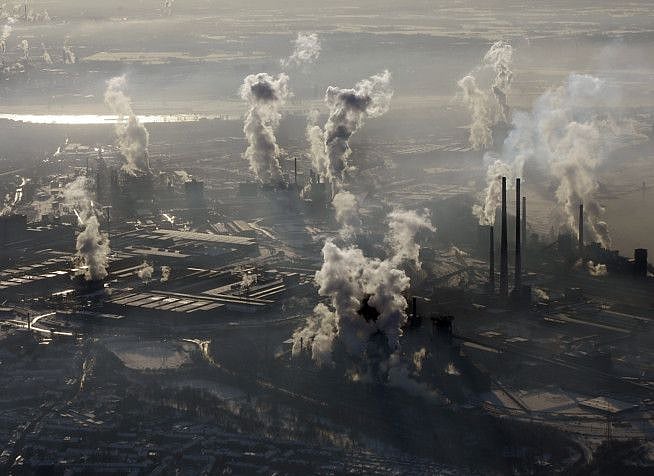The 28-country EU Parliament declared a “climate emergency” on Thursday in a vote that heightens pressure for action at the UN climate summit that starts Monday. The meeting comes after a year in which global warming has risen rapidly in the public consciousness with “climate emergency” recently declared as the words of 2019 by Oxford Dictionaries following a massive increase in their usage.
The summit is therefore as urgent as it is important on the fourth anniversary of the landmark Paris conference. For while there is growing international recognition that climate change is perhaps the biggest facing humanity in the twenty-first century, much more action is needed. This was underlined only this week with a hard-hitting report by the United Nations which showed that the world is on track to produce more than twice as much coal, oil and gas as can be burned by 2030 while restricting rise in the global temperature to 1.5 degrees Celsius, the uppermost limit scientists say is necessary to prevent dangerous or so-called ‘runaway’ climate change.
The study compares plans by countries for fossil fuel extraction with the goals of the 2015 Paris agreement, which aimed to keep global heating below 1.5 Celsius. It found a massive divergence between planned fossil fuel production by 2030 and these targets: around 120 per cent more than that consistent with 1.5 degrees Celsius, and 50 per cent more than accords with even a rise in temperature of 2 degrees Celsius.
While the difference between 1.5 and 2 degrees Celsius may seem inconsequential, scientists have warned that the difference could be hugely significant in terms of exposing potentially hundreds of millions more people to much higher risks of extreme weather, including drought and heatwaves with the environmental, social and economic consequences that comes with this. And, alarmingly, the UN currently forecasts that current country pledges to cut carbon emissions are far short of even 2 degrees Celsius warming, with potentially calamitous 3-4 degrees Celsius increases predicted.
In this context, it is clear that world leaders now need to ratchet up collective climate ambitions into the 2020s with urgent, unprecedented action. This requires genuine global statesmanship, especially in the context of the Intergovernmental Panel on Climate Change assessment that there may be only around a decade to prevent the worst impacts of ‘run-away’ global warming.
In these circumstances, pessimism may yet grow about the future of global efforts to combat climate change. Yet, while the scale of the challenge is huge, and growing, actions can still be taken collectively by governments, businesses and individuals that are affordable and feasible to potentially turn this situation around under the flexible Paris treaty which has potential to be ratcheted up.
Paris came after many years of painstaking negotiations and, crucially, a new post-Kyoto framework was put in place. The deal agreed to see greenhouse gas emissions peak “as soon as possible”, and achieve a balance between sources and sinks of greenhouse gases in the second half of this century.
In the four years since, critics of the deal — from different parts of the political spectrum — have already sought to diminish its significance. However, the agreement deserves to be defended robustly for as then-US President Barack Obama asserted in 2015, it may prove to be “the best chance we have to save the planet we have”.
For those who argue that Paris is not ambitious enough, it needs to be remembered that the long-running UN-brokered talks nearly collapsed several times prior to agreement in 2015, and that this was one of the most complex set of international negotiations ever. While the deal is far from perfect, it nonetheless has kept the process ‘alive’, the importance of which cannot potentially be underestimated.
Moreover, the review framework means that countries can in the future potentially toughen their response to climate change in the future. So, rather than viewing Paris as the end of the process, it must be seen as a very important stepping stone in a longer journey that countries must now make.
What is now important is that the political ‘window of opportunity’ provided by the treaty is now leveraged. Four years on from its agreement, this includes the need for implementation as fast as possible.
Taken overall, tackling the challenges posed by global warming remains a massively ambitious agenda that will require comprehensive and swift actions from governments and the corporates if it is to have any prospect of being achieved. While this is uncertain, the fact remains that Paris created a window of opportunity for the 2020s, and what is now needed is political, business and civic leadership to help ensure effective implementation, and holding the public and private sectors to account so that the treaty truly delivers.
— Andrew Hammond is an Associate at LSE IDEAS at the London School of Economics
Sign up for the Daily Briefing
Get the latest news and updates straight to your inbox
Network Links
GN StoreDownload our app
© Al Nisr Publishing LLC 2026. All rights reserved.
